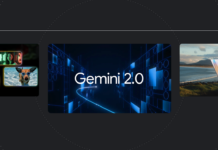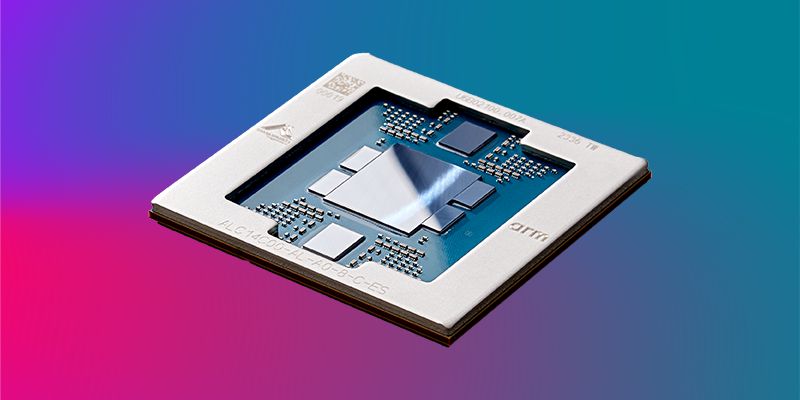Amazon EC2 Introduces New C8g and M8g Instances
Amazon has announced the general availability of the new Amazon Elastic Compute Cloud (Amazon EC2) C8g and M8g instances. These instances are designed to provide enhanced performance and efficiency for various workloads, leveraging AWS Graviton4 processors.

Overview of C8g Instances
The C8g instances are powered by AWS Graviton4 processors, making them highly suitable for compute-intensive tasks. These tasks include high-performance computing (HPC), batch processing, gaming, video encoding, scientific modeling, distributed analytics, CPU-based machine learning (ML) inference, and ad serving.
Overview of M8g Instances
Similarly, M8g instances also utilize the Graviton4 processors but are optimized for general-purpose workloads. These instances are ideal for applications such as application servers, microservices, gaming servers, mid-size data stores, and caching fleets.
Key Enhancements in C8g and M8g Instances
Both C8g and M8g instances offer significant improvements over their predecessors. Here are some key enhancements:
- Larger Instance Sizes: These instances now support up to three times more vCPUs, reaching up to 48xl.
- Increased Memory: C8g instances offer up to 384GB of memory, while M8g instances provide up to 768GB.
- Improved Memory Bandwidth: There’s a 75 percent increase in memory bandwidth.
- Enhanced L2 Cache: These instances feature double the L2 cache compared to their 7g counterparts.
- Network and Storage Bandwidth: Up to 50 Gbps network bandwidth and up to 40 Gbps Amazon Elastic Block Storage (Amazon EBS) bandwidth, compared to up to 30 Gbps network and up to 20 Gbps EBS bandwidth on Graviton3-based instances.
- Bare Metal Sizes: Like the R8g instances, C8g and M8g instances offer two bare metal sizes (metal-24xl and metal-48xl), allowing for direct access to physical resources.
Detailed Specifications
C8g Instance Specifications
| Instance Size | vCPUs | Memory (GiB) | Network Bandwidth (Gbps) | EBS Bandwidth (Gbps) |
|——————|———-|——————|—————————–|————————-|
| c8g.medium | 1 | 2 | Up to 12.5 | Up to 10 |
| c8g.large | 2 | 4 | Up to 12.5 | Up to 10 |
| c8g.xlarge | 4 | 8 | Up to 12.5 | Up to 10 |
| c8g.2xlarge | 8 | 16 | Up to 15 | Up to 10 |
| c8g.4xlarge | 16 | 32 | Up to 15 | Up to 10 |
| c8g.8xlarge | 32 | 64 | 15 | 10 |
| c8g.12xlarge | 48 | 96 | 22.5 | 15 |
| c8g.16xlarge | 64 | 128 | 30 | 20 |
| c8g.24xlarge | 96 | 192 | 40 | 30 |
| c8g.48xlarge | 192 | 384 | 50 | 40 |
| c8g.metal-24xl | 96 | 192 | 40 | 30 |
| c8g.metal-48xl | 192 | 384 | 50 | 40 |M8g Instance Specifications
| Instance Size | vCPUs | Memory (GiB) | Network Bandwidth (Gbps) | EBS Bandwidth (Gbps) |
|——————|———-|——————|—————————–|————————-|
| m8g.medium | 1 | 4 | Up to 12.5 | Up to 10 |
| m8g.large | 2 | 8 | Up to 12.5 | Up to 10 |
| m8g.xlarge | 4 | 16 | Up to 12.5 | Up to 10 |
| m8g.2xlarge | 8 | 32 | Up to 15 | Up to 10 |
| m8g.4xlarge | 16 | 64 | Up to 15 | Up to 10 |
| m8g.8xlarge | 32 | 128 | 15 | 10 |
| m8g.12xlarge | 48 | 192 | 22.5 | 15 |
| m8g.16xlarge | 64 | 256 | 30 | 20 |
| m8g.24xlarge | 96 | 384 | 40 | 30 |
| m8g.48xlarge | 192 | 768 | 50 | 40 |
| m8g.metal-24xl | 96 | 384 | 40 | 30 |
| m8g.metal-48xl | 192 | 768 | 50 | 40 |Additional Information
- Enhanced Security: AWS Graviton4 processors offer enhanced security features, including always-on memory encryption, dedicated caches for each vCPU, and support for pointer authentication.
- Built on AWS Nitro System: This system is a collection of hardware and software that offloads traditional virtualization functions, leading to high performance, availability, and security with reduced virtualization overhead.
- Ideal for Linux-Based Workloads: C8g and M8g instances are well-suited for Linux-based workloads, including containerized and microservices-based applications running on Amazon Elastic Kubernetes Service (Amazon EKS) and Amazon Elastic Container Service (Amazon ECS). They also support applications written in popular programming languages such as C/C++, Rust, Go, Java, Python, .NET Core, Node.js, Ruby, and PHP.
Learn More
For more information about these new instances, visit the Amazon EC2 instances page. Feedback can be shared via AWS re:Post for EC2 or through your usual AWS Support contacts.
For more updates and professional insights, stay connected to our blog.
For more Information, Refer to this article.


































